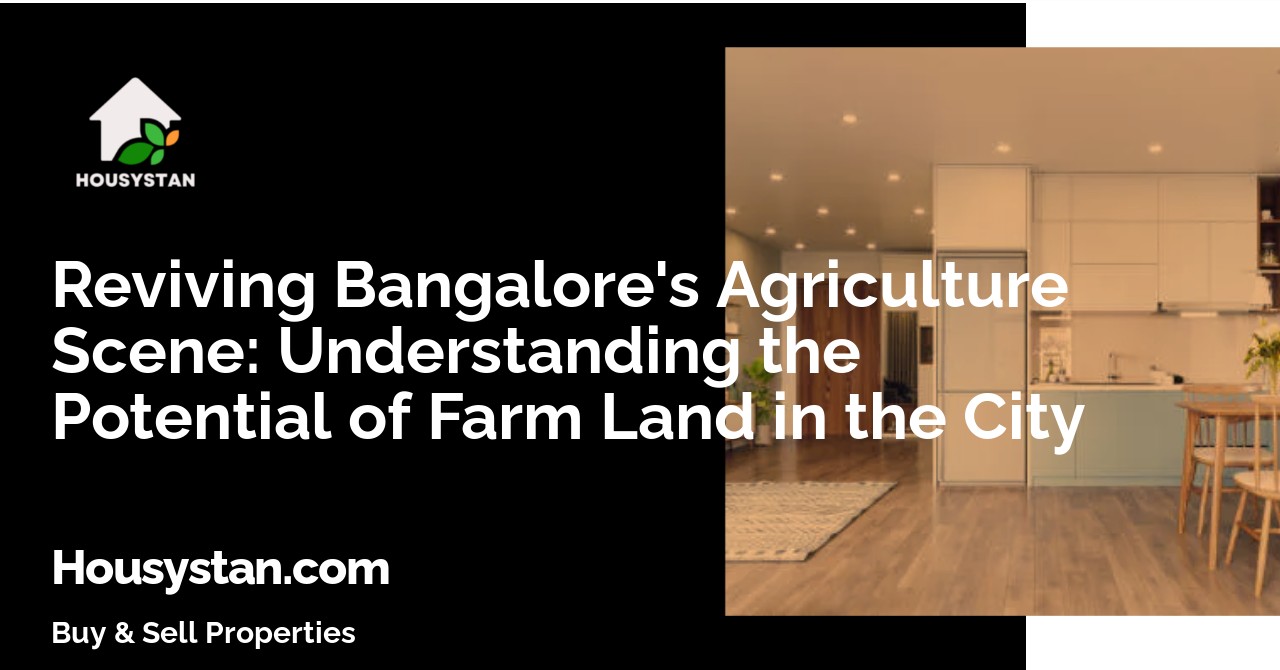Reviving Bangalore's Agriculture Scene: Understanding the Potential of Farm Land in the City
Read latest blogs and articles from Housystan

The Information mentioned here was last updated on:
29/1/2026Reviving Bangalore's Agriculture Scene: Understanding the Potential of Farm Land in the City
Bangalore, also known as Bengaluru, stands at the forefront of India’s technological evolution, yet the city’s agricultural roots remain deeply woven into its landscape. In recent years, the spotlight has shifted back to farming in Bangalore, as urban dwellers and investors recognize the immense value farm land holds within and around the city. With rising demand for organic produce, sustainable living, and eco-friendly investments, exploring Bangalore's agricultural potential offers promising opportunities for both local residents and those considering relocation to Karnataka’s capital.
The fertile outskirts of Bangalore boast a unique climate, making the region ideal for cultivating a wide variety of crops. From fresh vegetables and aromatic spices to floriculture and exotic fruits, the area’s soil and weather conditions are highly favorable for year-round agriculture. Proximity to local markets, robust transport infrastructure, and easy access to urban amenities provide significant advantages for farm land owners and cultivators. This blend of rural charm and metropolitan convenience positions Bangalore as a prime destination for modern agriculture ventures.
- Verified Tenants/Buyers
- Unlimited Property Listing
- Zero subscription/charges fee
Moreover, the city’s growing population has fueled a surge in demand for healthy, locally-sourced food. As more Bangaloreans embrace organic lifestyles and prioritize wellness, the market for farm-fresh produce continues to expand. Investing in agricultural land not only supports sustainable farming practices but also serves as a lucrative asset in a rapidly developing region. Many individuals and organizations are now establishing organic farms, agri-tourism destinations, and weekend retreats, seamlessly integrating rural tranquility with urban accessibility.
Government initiatives in Karnataka further encourage agricultural innovation, offering incentives and support for sustainable farming techniques, water conservation, and soil health improvement. These policies make acquiring and managing farm land in Bangalore a practical and forward-thinking choice. Whether you’re an investor, entrepreneur, or someone passionate about farm-to-table experiences, understanding the potential of Bangalore’s agricultural sector is essential for making informed decisions.
Unlock the future of green investments and healthy living by exploring farm land opportunities in Bangalore. Reviving the city’s agricultural landscape not only preserves local heritage but also paves the way for a sustainable, prosperous future in one of South India’s most dynamic urban centers.